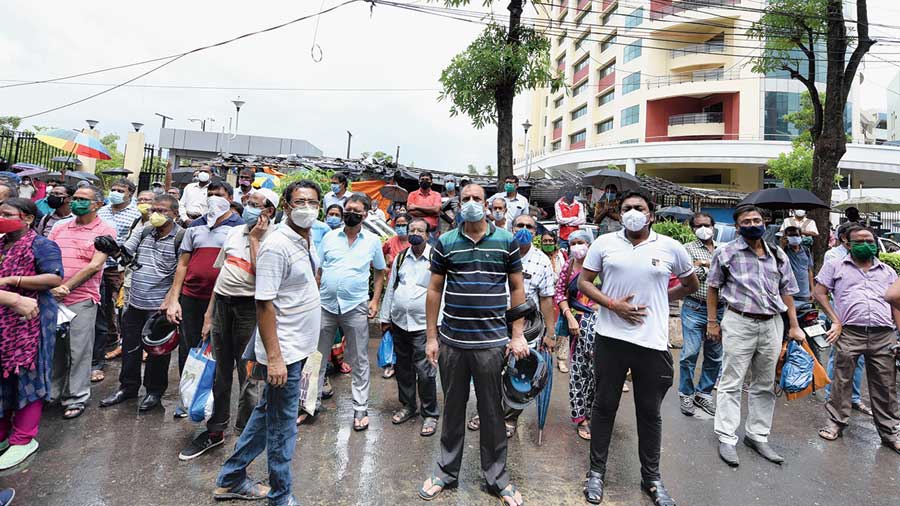The Union health ministry has left it to symptomatic students the final decision whether to take an exam or not, echoing a public health policy caution not displayed by those pushing for immediate examinations at higher education institutions.
“Only asymptomatic staff and students shall be allowed inside the examination hall,” the standard operating procedures (SOPs) issued by the Union health ministry on Wednesday said.
“In regular course, a symptomatic candidate should be referred to the nearest health centre and given an opportunity to undertake the exam through other means or the universities or educational institution should arrange for taking exam at a later date when the student is declared physically fit.”
However, if a student found symptomatic insists on taking the exam, she or he “may be allowed to take the exam by shifting the candidate to a separate isolation room”, the SOPs said.
“The permission in such cases shall be granted as per the policy already enunciated by the examination-conducting authorities.”
Students living in containment zones will not be allowed to sit for the exams, nor will there be any exam centres in such zones.
The guidelines are intended to be adopted by the organisers of a series of examinations from this month, covering lakhs of students in the higher education segment. They are also intended for universities that conduct exams during the current phase of the coronavirus epidemic.
For practical purposes, the health ministry’s guidelines do not differ from those issued by the National Testing Agency (NTA), which is conducting the ongoing JEE Main exams and the proposed NEET for medical courses. The NTA too had specified that any student whose temperature is 99.4°C or higher would be allowed to take the examination in a separate isolation room.
But the Union health ministry has made it clear that ideally, symptomatic students should not sit their exams — advice that is absent from the NTA guidelines.
The examinations have become a matter of dispute between the Centre and some of the states, including Bengal. Bearing out the fears expressed by chief minister Mamata Banerjee, as much as 75 per cent of the candidates stayed away from the first day of the JEE Main in Bengal on Tuesday.
The Union health ministry’s SOPs have iterated the use of masks, physical distancing, sanitisers, thermal scanning, adequate crowd management and other precautions.
But, some health experts said, the clause that allows symptomatic students to visit exam centres appears to contradict the primary objective of the SOPs.
Health experts say that allowing symptomatic people into exam centres is fraught with risk. “This is in stark contradiction to the public health measures needed to contain a respiratory infection,” said Oommen John, a physician and senior research fellow at The George Institute for Global Health, New Delhi.
“Under current circumstances, individuals with symptoms are expected to stay home and test themselves for the coronavirus infection, not mingle with others,” John said.
“Even while on their way to separate isolation rooms, symptomatic students could potentially spread the infection to others.”
Several infectious disease specialists have cautioned that exams can trigger a surge in cases -– whether they are open to students with or without infections.
“Asymptomatic and pre-symptomatic people also shed the virus and can spread the infection,” said Shahid Jameel, senior virologist and chief executive of the Wellcome Trust DBT India Alliance, a UK-India research partnership. “There is no way of knowing who is infected by checking the body temperature.”
However, Jameel said, if in-person exams must happen, “it is best to focus attention on the seating arrangement and air flow, and ensure that everyone wears a mask and has a hand sanitiser for whatever it’s worth.”











